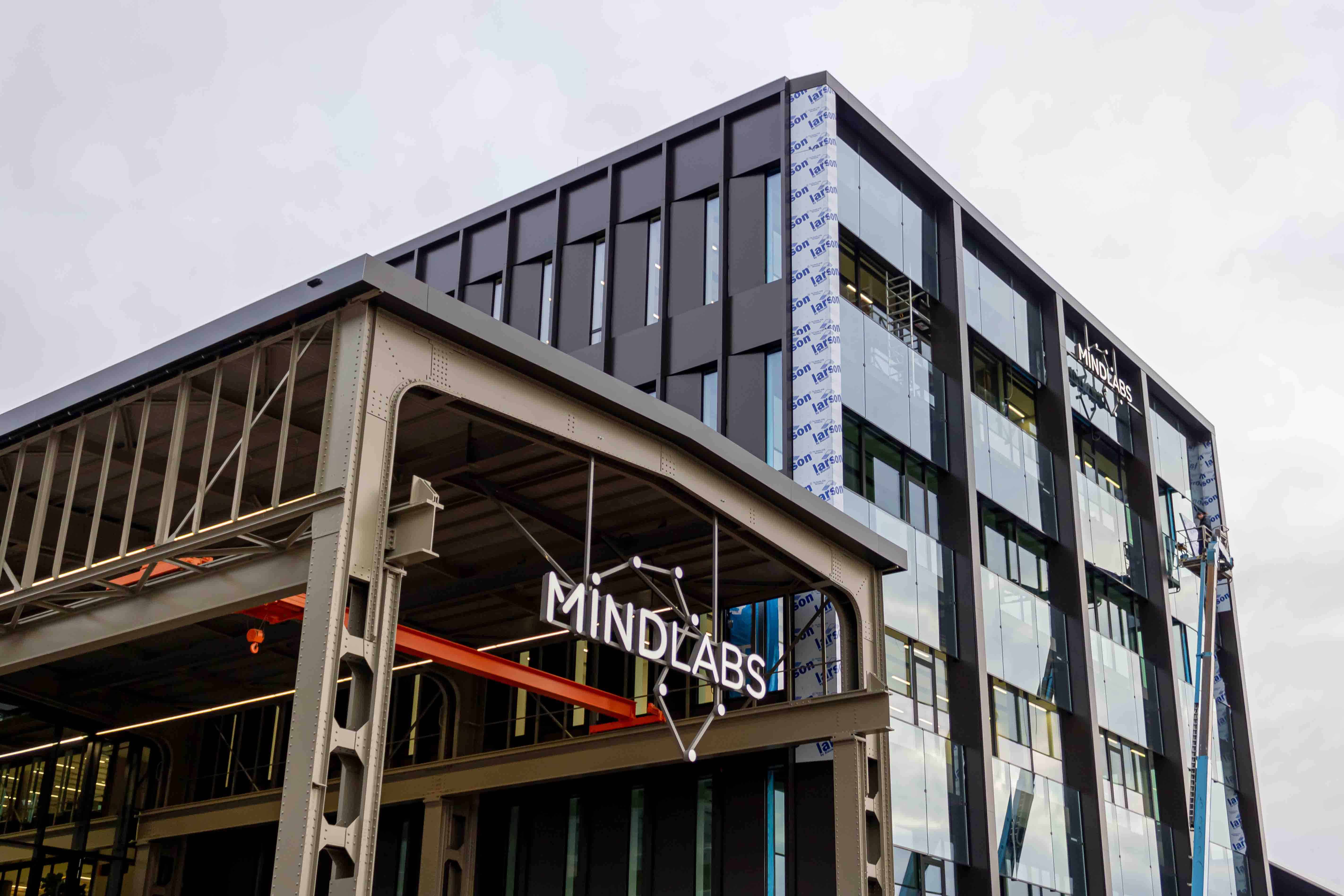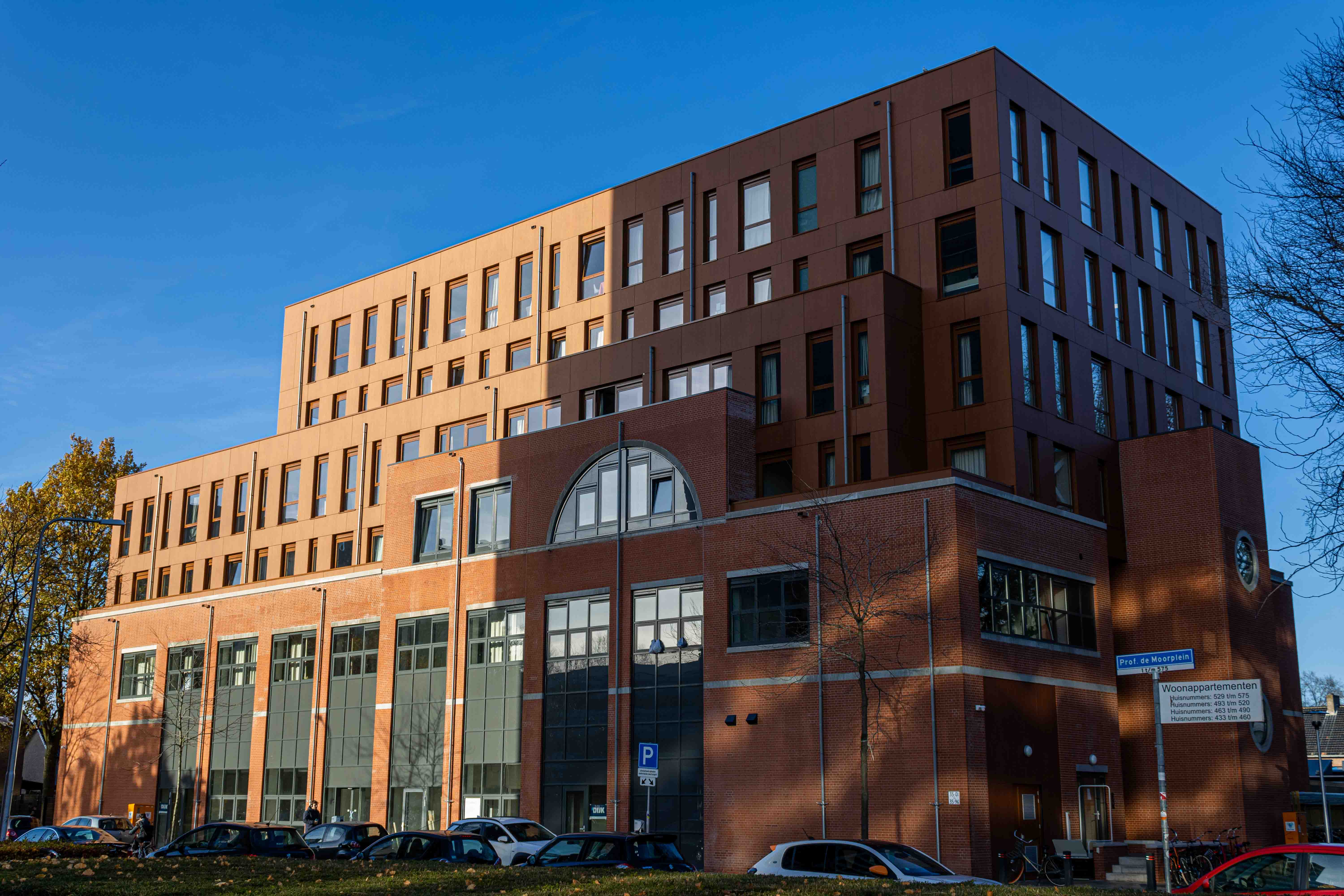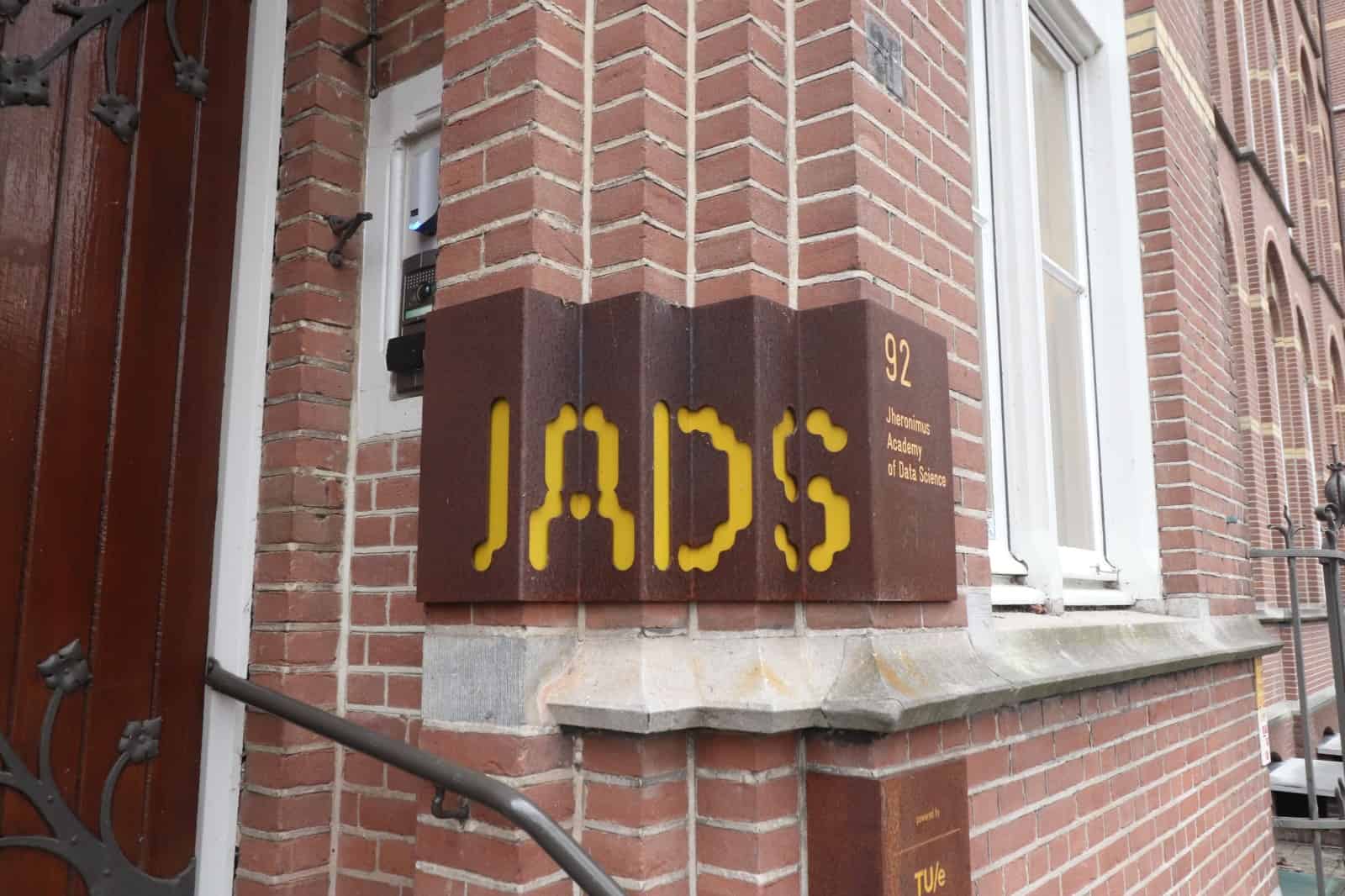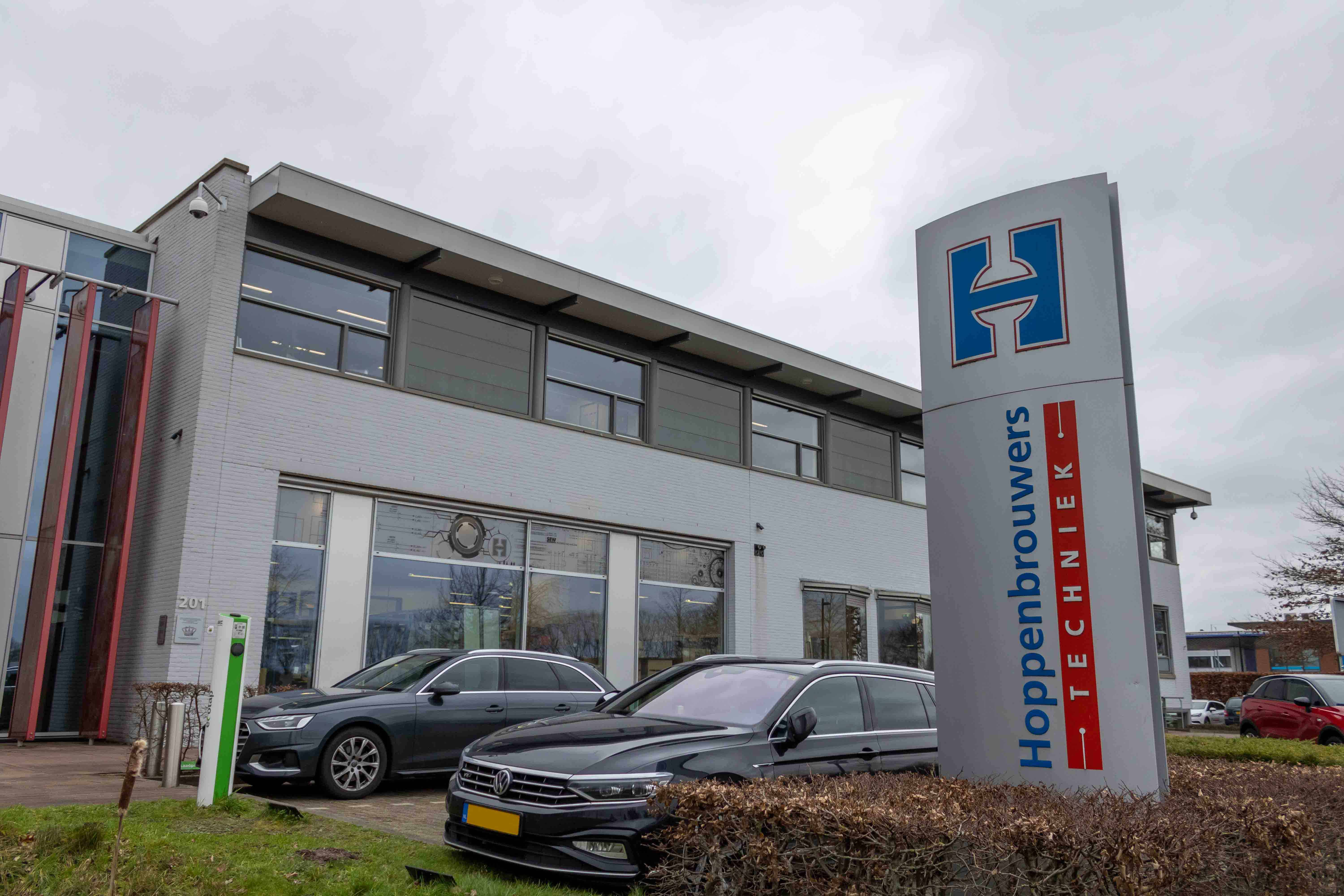
The rapid technological developments in our society are currently hard to keep up with. How do we navigate through a whirlwind of developments? The launch of MindLabs in Tilburg’s Spoorzone opens the doors of an inspiring centre where education and business discover the applications of technology.
- MindLabs, focused on human-centered AI, opens its doors
- Projects taken up here have a direct impact on society, from healthcare to education.
What is MindLabs?
MindLabs is a partnership involving four knowledge institutions, including Tilburg University, governments and a growing number of business partners, social institutions and start-ups. Together, MindLabs’ partners strengthen the development of technologies that interact with human behaviour, or human-centred AI.
The opening last Wednesday of MindLabs, located in the heart of Spoorzone Tilburg, was introduced in a special way by MAI: a custom-made avatar. The opening symbolises MindLabs’ innovative approach. “More than ever, it is important not only to develop technology, but also to use it in a meaningful way. As a society, we need to make sure we are more on the ball together. That is what MindLabs is about,” says Petra van Dijk, director of MindLabs.
Together, the affiliated partners explore the possibilities and deployment of technologies such as robotics, serious gaming, VR and natural language processing in their interaction with human behaviour.

From education to healthcare and beyond
MindLabs was founded by Tilburg University, Fontys Hogeschool, ROC Tilburg and the municipality of Tilburg, but dozens of organisations have now joined. Many projects directly affect education. “The aim is not only to prepare students for the labour market, but also to stimulate innovation within education itself,” says Van Dijk. For instance, on the fourth floor of the building sits Publishing House Zwijsen. Among other things, they are investigating how avatars, such as historical figures during primary school lessons, can be used to make education more interesting.
A wide range of healthcare applications are also being developed in the building. An ageing population and staff shortages are just a few of the challenges facing the sector. “Here, too, technology can lend a helping hand. Think, for example, of a smart mattress, with built-in sensors that can measure body temperature and heart rate. Such solutions relieve care staff, allowing them to focus on other essential tasks.”
Another focus area is media, where DPG Media, local broadcasters and Fontys Journalism are collaborating on the future of journalism. “The shift from traditional newspapers to digital news sources raises important questions that are being answered within MindLabs: how can we counter fake news and how do we ensure that we maintain an informed population?”
In addition, the Ministry of Defence announced during the building’s opening that it was joining MindLabs. The third floor will soon house the Datascience Centre of Excellence.In collaboration with other partners within MindLabs, Defence staff focus on issues such as cybersecurity, combating misinformation and fake news.Moreover, they face the challenge of developing algorithms that improve military decision-making.
Direct impact
In the coming years, society can eagerly await the ‘birth’ of promising initiatives within MindLabs.
“I myself am already noticing the impact of this building,” Van Dijk concludes. “I meet parties, with whom I had an appointment scheduled in three weeks’ time, here in the corridors.Within no time you have something up and running together.”
A stepping stone
The municipality is also delighted with the arrival of MindLabs, said Sander Potters, policy advisor for economics and innovation at the municipality of Tilburg: “It is a valuable stepping stone for the city.” The close collaboration between education and companies in the field of human-centred AI, which Potters said Tilburg excels in, is more than welcome. “MindLabs offers a challenging, hybrid learning environment. At the same time, companies can bring in new talent. Many companies are facing a transition issue where they can make good use of education. For example, consider a company like DB Schenker, which has joined MindLabs.” Among other things, the company is exploring the use of interactive technology to engage employees in its digital transformation and to attract and train new employees.
In addition, Potters expects new start-ups to emerge from the collaborations within MindLabs. These may in turn land in the Spoorzone. “We have reserved specific space for this, and hope that in time many more innovative companies will come to strengthen our ecosystem. There are great things to happen in the coming years.”






